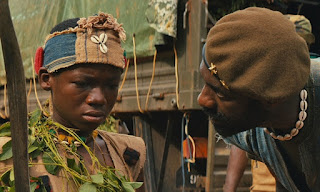When you start with the worst Bond song ever as a
precursor to the worst title sequence in Bond movie history, the omens are not
good. The fact that the song is called ‘The Writing’s on the Wall’ only makes
it more ominous.
It would be nice to say that the problems with Spectre stem only from Sam Smith and a
misguided credits sequence but my issues with this film go far deeper.
Over the years the Bond series has been a byword
for the sort of industrial movie-making that Hollywood can do so well. Yes, I appreciate
that these are effectively independent films made by Eon but the argument still
applies. A new one comes down the conveyor belt round about this time every two
years and there is a massive industry which has become dependent on it making
that date.
Even in the best-run industrial operations the
production line comes a cropper from time to time and that’s what’s happened
here for my money. Spectre has every
sign of a film made under pressure to hit a world-wide release date. The
process shots in the opening helicopter fight look very dodgy, the plot has
holes you could drive an Aston Martin through, and there’s an air of
desperation about the whole thing. No one appears to be quite in control of
what’s going on.
The result is a film which is at best ordinary and
at worst dull and mechanical. That it follows on from Skyfall only makes things more acute. Skyfall is the most successful Bond film ever but I suspect that a
lot of that success was down to relief that it wasn’t Quantum of Solace, for my money the worst film ever.
Once you get past Skyfall’s halo effect, it wasn’t actually all that. The plot was
simply a succession of increasingly improbable death traps from which Bond
escaped with increasing ease, until we get to the end with a bit of emotional
heft thrown in with the death of a major character.
Spectre
is much the same but without the imagination of Skyfall. Just as Quantum of
Solace was a continuation of Casino
Royale, this is a continuation of sorts from Skyfall. The problem is there isn’t enough story for two films so
it is relentlessly padded with material we have seen before.
Originality is always going to be an issue in a
franchise with 20-odd entries but this seems unnecessarily cannibalistic. The
problem for me is that it only reminded me of how much better they had been
done in the past. The opening fiesta scene comes from Thunderball, the train fight – pointless as it turns out - is from
either From Russia with Love or Live and Let Die, the Alpine clinic stuff has
been seen in On Her Majesty’s Secret
Service and so on.
The other, more disturbing, aspect of this is the
return of old-fashioned retro sexism to Bond. Of course Fleming created him as
a fantasy for 50s and 60s men and, in context, the sexism in the original
novels is explainable. It should have been kicked into touch by now but
instead, as we saw in Skyfall, we
have Bond effectively forcing himself on women and two female characters who
are little more than plot points; not very convincing ones either. Lea Seydoux
seems to exist simply to be in peril and whoever wrote her scenes should be
ashamed.
None of this would be necessary with a decent
script in the first place but despite four credited screenwriters Spectre still looks less than
camera-ready and a couple more passes wouldn’t have hurt. The notion of making
Craig’s four films into an informal quartet doesn’t work. Christopher Waltz is
the author of all of Bond’s pain apparently. How does that work then? It’s a
decent line but in the absence of a compelling master plan he is not so much
evil genius as evil project manager.
Waltz phones it in with a generic evil mastermind
performance but to be honest all of the cast look pretty unengaged. Craig’s
comments in the round of media interviews to promote the film tend to
reinforce that.
On the whole Spectre
is humourless, charmless, and unimaginative. It has one good moment when Bond
goes all Jack Carter on a security guard to remind him of the inadvisability of
taking on a trained killer in hand to hand combat. Moments like these are few
and far between unfortunately.
James Bond’s biggest battle is not against any evil
genius, it is rather to remain relevant. Fleming’s concept of ‘thrilling
cities’, has been successfully appropriated by the Mission: Impossible franchise and Jason Bourne has cornered the market in gritty adventure. So where
does 007 go from here?
In Goldeneye,
the first of the ‘modern’ Bonds, Judi Dench accused Bond of being a sexist,
misogynist dinosaur. She may have been right after all because without an
injection of fresh blood and imagination the franchise may be on the road to
extinction.







